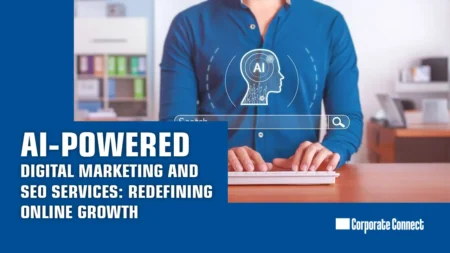Bridging Academics and Entrepreneurship: Why IB Students Are the Next Generation of Innovators
A few years ago, one of my IB Math students sat across the screen from me during an online tutoring session, looking both proud and guilty.
“Sir,” he said, “I think I’ve accidentally started a business.”
It turned out he had designed a simple website to help classmates exchange second-hand textbooks. What began as a side project to save some pocket money spiralled into a real platform with dozens of users. By the end of the semester, he was charging a small fee per transaction and reinvesting his profits into ads.
The funny part? He had no idea he was running a startup until his IB Economics Tutors helped him frame the concept of “supply and demand” around what he was already doing. What he thought was “helping classmates” was, in fact, entrepreneurship in disguise.
That moment stuck with me. Because if you’ve ever worked closely with IB students, you know this: they don’t just study for exams. They experiment. They question. They stumble into ideas that grown-ups would call “innovation.”
Why IB Feels Like a Startup Bootcamp (Even If Students Don’t Realise It)
Most people see the IB as a tough academic program—long essays, complicated projects, and never-ending assessments. And yes, it is demanding. But look closer, and you’ll notice it feels eerily similar to the startup world.
- Uncertainty is the norm. Ask any IB student how they feel about tackling a TOK essay. It’s the same expression an entrepreneur makes when pitching to investors without knowing if the idea will sink or fly.
- Collaboration is survival. Group projects in science labs aren’t just about data collection; they’re about managing personalities, timelines, and unexpected results—skills every founder needs.
- Failure is part of the process. I’ve watched students submit a disastrous first draft of their Internal Assessment, then rebuild it into something brilliant. That resilience mirrors what happens in startups every day.
And unlike traditional schooling systems, the IB actively encourages students to take intellectual risks. A math IA doesn’t have to stick to textbook problems; it can analyse how algorithms decide your Spotify playlist. An Economics IA might explore the local food delivery market. With the right Tutors, those sparks of curiosity often transform into bigger ventures.
Stories from the Trenches
Let me share a few snapshots from my tutoring journey that show this bridge between academics and entrepreneurship:
- The Social Campaigner- An IB student in Dubai used his CAS project to launch a neighbourhood recycling drive. With the help of his IB Online Tutors, he tracked data, measured impact, and pitched the results to his school board. By the time he graduated, the project had grown into a city-wide campaign supported by local businesses.
- The Accidental Coder- Another student, struggling with his Computer Science IA, kept complaining that the school’s attendance system was “boring and outdated.” After weeks of trial, error, and late-night debugging sessions, he built a better app. The school didn’t adopt it officially, but a nearby tutoring centre did. That’s how a frustrated teenager turned into a teenage software consultant.
- The Budding Economist- One of my students was fascinated by coffee pricing in her city. With guidance from her IB Economics Tutors, she turned her IA into a detailed study of market trends. Later, she partnered with her cousin to open a tiny café. It wasn’t a global brand, but for a 17-year-old, it was the real taste of entrepreneurship.
These aren’t glossy magazine success stories. They’re messy, real, and often imperfect—but that’s exactly what makes them authentic examples of how academics can spark entrepreneurship.
Tutors: The Unsung Co-Founders
Here’s something students rarely admit until much later: their Tutors often act like silent co-founders in these journeys. Not because we give them “the answers,” but because we ask the right questions.
A good tutor doesn’t just explain fiscal policy; they ask, “How would this apply if you were running your own business?” We don’t just help with calculus; we ask, “What happens if your model doesn’t fit reality?” These nudges push students to connect dots they wouldn’t see on their own.
And when tutoring happens online, the entrepreneurial flavour becomes even stronger. With IB Online Tutors, students learn how to manage time zones, organise resources, and communicate virtually—skills that mirror exactly how modern startups operate.
In fact, some of my students joke that their tutoring sessions feel less like “extra classes” and more like brainstorming meetings for a company that doesn’t exist yet.
Why IB Students Stand Out as Future Innovators
So, what makes IB students particularly well-positioned to become entrepreneurs compared to their peers in other programs?
- They’re trained to think globally. IB classrooms are melting pots of culture. Students quickly learn that a “one-size-fits-all” solution rarely works. That global perspective is gold in business.
- They learn to balance depth with breadth. The mix of Higher Level and Standard Level subjects forces students to dig deep into some areas while keeping a wider view of others—a skill entrepreneurs need when juggling vision and operations.
- They’re constantly tested on originality. Whether it’s an Extended Essay or an IA, originality isn’t optional; it’s required. That expectation becomes a habit.
- They already fail forward. Every student who’s missed a deadline, rewritten an essay, or bombed a mock exam knows the taste of failure—and the discipline to bounce back.
Combine these qualities with access to passionate Tutors, and you’ve got a generation that doesn’t just dream about innovation—they practice it.
The Human Side of the Story
I don’t want to paint IB students as superheroes. They get stressed. They procrastinate. They sometimes Google “Can I survive on three hours of sleep?” at 2 AM.
But in those messy, human struggles, something beautiful is happening. The program trains them to find solutions, adapt, and push forward. And every once in a while, those survival strategies turn into entrepreneurial instincts.
I’ve had students tell me years later, “The way we broke down a TOK essay is the same way I now break down problems in my startup.” Others laugh and say, “Remember how you kept telling me to think like an economist? Well, now I actually am one.”
That’s the bridge. It’s not about academics or entrepreneurship. It’s about how the two fuel each other in unexpected, wonderfully chaotic ways.
Final Thoughts
If you’ve ever wondered whether the hours spent with textbooks, essays, and online tutoring sessions really prepare students for “the real world,” just look at what IB graduates are doing. They’re starting businesses, launching apps, running campaigns, and rethinking industries—all before most people their age even write their first CV.
And behind them, often invisible, stand the mentors: the IB Online Tutors, the patient IB Economics Tutors, and the countless Tutors who helped them connect the dots.
So the next time someone dismisses academics as “just theory,” remind them: for IB students, those theories are often the seeds of the next great idea.
The classroom isn’t separate from the world of entrepreneurship—it’s the launchpad.
Must Read:









